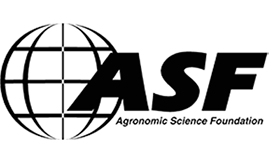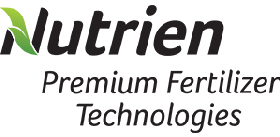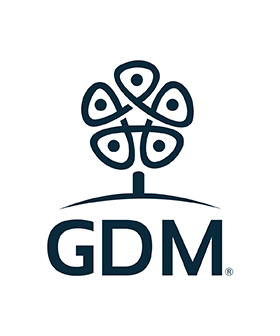2023 INSPIRING SPEAKERS coming soon!
Extraordinary agronomic, crop, and soil science professionals that will energize and motivate you.
Guest of Honor
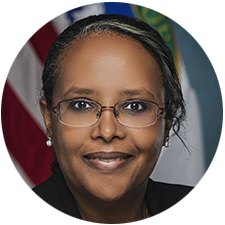
Dr. Asmeret Asefaw Berhe is Director of the Office of Science at the U.S. Department of Energy. She is on leave from the University of California, Merced where she is a Professor of Soil Biogeochemistry, holds the Ted and Jan Falasco Chair in Earth Sciences and Geology, and serves as the Interim Associate Dean for Graduate Education. Berhe’s internationally recognized research lies at the intersection of soil science, global change science, and political ecology, with an emphasis on how the soil system regulates the earth’s climate and the dynamic two-way relationship between the natural environment and human societies. Berhe’s expertise on feedbacks in the earth system brings a unique perspective for integrating across the physical and natural sciences.
Berhe’s scientific leadership has been recognized by multiple national awards. She is a Fellow of both the American Geophysical Union (AGU) and the Geological Society of America (GSA) and has received numerous awards and honors including the Joanne Simpson Medal from AGU (2020), Bromery Award from GSA (2019), and was selected as a New Voice in Science from the U.S. National Academies of Science, Engineering, and Medicine (2018). She is also a founding investigator of the ADVANCEGeo Partnership – a National Science Foundation funded effort to empower (geo)scientists to transform workplace climate through interventions to reduce harassment, discrimination, bullying, and other exclusionary behaviors in research environments.
"Towards a Thriving, Timely, and Inclusive Science for the 21St Century: the Role of DOE Office of Science"
Dr. Asmeret Asefaw Berhe, a soil biogeochemist, was confirmed by the U.S. Senate on May 10, 2022, to be the Director of the U.S. Department of Energy (DOE) Office of Science (SC)–the nation’s largest supporter of basic research in the physical sciences.
Dr. Berhe will describe how SC supports scientific inquiry to advance our understanding of the universe and to enable the Nation’s energy security, energy transformation, and prosperity.
Through its stewardship of 10 national laboratories and 28 scientific user facilities, SC provides vital tools and expertise that serve the global scientific community. SC-supported research is the foundation for new technologies that are essential to meeting the challenges of decarbonizing our economy, securing our energy supply, and giving rise to new industries that will create broad economic opportunity. SC brings expertise in Basic Energy Sciences and Biological and Environmental Research to the DOE’s efforts in long duration energy storage, carbon negative solutions, cost reductions for clean hydrogen, and advanced nuclear fission and fusion. The Advanced Scientific Computing Research program is extending the frontiers in computing to accelerate the pace of discovery, hastening our pursuit of powerful technologies to address a changing climate. SC is dedicated to broadening participation in the science and technology education and workforce, expanding access to the promise of new technologies, and seeking solutions that promote equity and justice for all stakeholders.
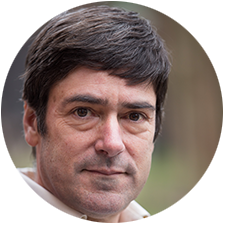
Richard Harris, veteran NPR Science Correspondent, joined National Public Radio in 1986 and traveled the world for the network. He has reported on a broad range of stories, including science at the South Pole, nuclear meltdowns in Japan, and climate change from Iceland to Timbuktu as well as the coronavirus pandemic.
His reporting during the 2010 Deepwater Horizon disaster revealed that the oil spill was an order of magnitude greater than officials had been reporting. He has won many honors over the years, including three American Association for the Advancement of Science. Journalism awards and top communications honors from the American Geophysical Union.
His 2017 book about rigor and reproducibility in biomedicine, Rigor Mortis, was a finalist for the National Academy of Sciences Keck Communications Award.
Richard stepped away from daily journalism in 2021 and is on an extended breather.
"Conveying the Truth in a World of Doubt"
The COVID-19 pandemic has underscored how difficult it can be to convey important science-based information to a skeptical segment of the public. This disconnect is hardly news to scientists whose work intersects with climate change. Richard Harris will talk about how to communicate effectively in this treacherous landscape so that scientists can help neighbors, voters, and policymakers arrive at fact-based decisions.
SSSA Plenary / Nyle C. Brady Frontiers of Soil Science Lectureship
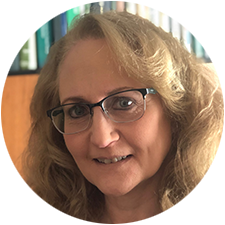
Jo Handelsman is the director of the Wisconsin Institute for Discovery and a Vilas Research Professor and Howard Hughes Medical Institute Professor in the Department of Plant Pathology at the University of Wisconsin–Madison. She previously served as a science advisor to President Barack Obama.
Dr. Handelsman’s research seeks to understand how soil microorganisms cooperate with and antagonize each other, and she is known for pioneering the field of functional metagenomics, a term she coined. Handelsman’s lab discovered several new antibiotics in the course of studying the role of small molecules as signals in soil microbial communities.
She is founder of Tiny Earth, a global consortium of college instructors and students dedicated to discovering new antibiotics from soil bacteria. Handelsman is also the author of A World Without Soil, a book that presents the soil erosion crisis for a general audience.
"Soil Erosion and Public Engagement"
This lecture will discuss the soil erosion crisis and how scientists can engage with the public about it.
Soil is no longer a renewable resource. Many locations in the world are losing topsoil 10 to 100 times faster than it is generated. At current rates of erosion, large tracts of the world’s most productive farmland will be devoid of topsoil by the end of this century, rendering the Earth unable to sustain food production for its burgeoning population. Moreover, soil is Earth’s largest terrestrial carbon sink, which stockpiles three times as much carbon than the entire atmosphere and four times as much as all of Earth’s vegetation. Given the loss of 133 billion tons of carbon from soil in the last two centuries, the soil offers a vast repository for carbon deposition, making it a key player in addressing climate change. Erosion is a problem we know how to address. As soil scientists, we have the responsibility to engage with the public, politicians, and international policy makers to find ways to implement soil conservation practices at the local and global scales.
ASA Plenary / E.T. & Vam York Distinguished ASA Lectureship
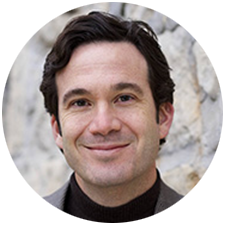
Brady Deaton, Jr. is the McCain Family Chair in Food Security in the Department of Food, Agricultural and Resource Economics at the University of Guelph. He earned his Ph.D. degree in Agricultural Economics from Michigan State University. His research focuses on food security and land tenure. He served as President of the Canadian Agricultural Economics Society, an editor of the Canadian Journal of Agricultural Economics, and President of the Institutional and Behavioural Economics Section of the Agricultural and Applied Economics Association.
Professor Deaton provides leadership to an award-winning teaching, research, and outreach program. He received the Teaching Excellence Award from the University of Guelph’s Central Student Association and the Distinguished Extension Award from Ontario’s Agricultural College. The Canadian Agricultural Economics Society honoured him and co-authors with the 2021 Outstanding Journal Article Award for their research on food insecurity on First Nations.
"Institutional Alertness and Research on Land Use and Drinking Water Quality"
In this presentation I provide an overview of my research and outreach efforts to understand and enhance the use of resources to improve human well-being. I define ‘institutional alertness’ and explain why it serves as the key conceptual compass I use to navigate and focus my research. I provide specific examples from my research examining land ownership in rural regions of the United States, farmland rental arrangements in Canada, and drinking water sharing arrangements on First Nations located in Canada.
CSSA Plenary / Betty Klepper Endowed Lectureship
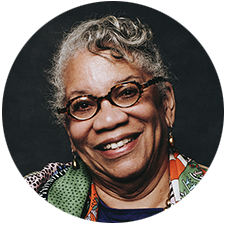
Jessica B. Harris is considered by many to be one of the ranking authorities on the food of the African Diaspora. A New York Times bestselling author, she is the author, editor, or translator of eighteen books, including twelve cookbooks documenting the foodways of the African Diaspora. Her award-winning book, High on the Hog, was the basis for the acclaimed Netflix series of the same name.
She has lectured widely and written extensively for scholarly and popular publications. Harris consults internationally, is leading the Culinary Institute of America’s team to establish an African Diaspora concentration, and worked with the Smithsonian Museum of African American History and Culture conceptualizing its cafeteria.
Dr. Harris holds degrees from Bryn Mawr College, Queens College/CUNY, The Université de Nancy, France, and New York University. She was granted an honorary doctorate of humane letters from Johnson & Wales University and holds numerous awards and accolades. In 2019, Harris’s books were inducted into the James Beard Cookbook Hall of Fame and she was the 2020 James Beard Lifetime Achievement awardee. She was named to the 2021 TIME Most Influential People list. Dr. Harris was a professor at Queens College/CUNY in New York for five decades and is currently professor emerita at that institution.
"Same Boat Different Stops: Culinary and Cultural Connections in the African Atlantic World"
The plenary will present some ways in which the food and foodways of the African Atlantic World are inter-connected by examining several crops that have their origin on the African continent and discussing the culinary and cultural links that connect them to the countries of the American Hemisphere. Using visuals and selected references from works both culinary and literary, the presentation will give specific examples of dishes and highlight not only their use of the ingredient in question, but also the ways in which culinary and cultural uses vary from country to country within the Americas.
Francis E. Clark Distinguished Lectureship on Soil Biology
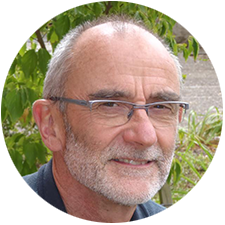
Peter Bottomley is an Emeritus Professor in the Departments of Microbiology and Crop and Soil Science at Oregon State University. He earned BS degrees in Chemistry and Biochemistry from the University of Liverpool, England, and a Ph.D. degree from the University of Dundee, Scotland. Dr. Bottomley’s research program focused primarily on microbial processes associated with N behavior in agricultural and forest soils, and on microbial transformations of halogenated hydrocarbons. Dr. Bottomley is a Fellow of SSSA, and has coauthored >150 refereed journal articles. He maintained a commitment to teaching at both the undergraduate and graduate levels throughout his 35+ years of service.
"Personal Insights into the Career of David Myrold: an Exemplary Example in Communication and Engagement"
David Myrold, Professor of Soil Science, and my long-time colleague at Oregon State University, passed in the Spring 2021 after a long battle with cancer. He and I forged a long-time friendship based upon our shared addiction to the multi-faceted discipline of soil microbiology, uncompromised work ethic, and infinitesimal curiosity about how soils work. We possessed strengths and limitations that we recognized in each other. We developed the ability to work around egos and believed totally in the mantra that two heads would produce a better outcome than one. As a consequence we were able to produce creative grant proposals built around hypotheses formulated from hours of kicking cans and knocking heads and supported by solid experimental design and analysis. We repeatedly discussed the range of scale in soils research, and how best to investigate the influence of scale on microbial processes. In my presentation I will discuss some of our work that occurred across scale ranging from meters to microns.
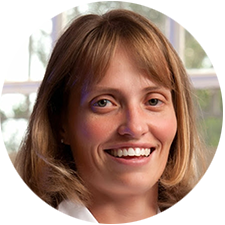
Stephanie Yarwood is an Associate Professor in the Environmental Science and Technology Department at University of Maryland College Park. She earned a B.A. from Whitman College and her PhD from Oregon State University in the Department of Crop and Soil Science.
Her research spans many ecosystems, including wetlands, urban soils, and sustainable agricultural systems. She integrates soil microbial ecology and biogeochemistry to understand disturbance and improve restoration. Her current work also focuses on understanding the mechanisms controlling trace gas emissions.
Dr. Yarwood has authored and co-authored 50 refereed journal articles and 2 book chapters.
She is the current chair of the Soil Biology and Biochemistry division. She is an associate editor for FEMS Microbial Ecology, Frontiers Ecology and Evolution, and Frontiers Soil Science. She has mentored twelve graduate students and serves on a number of graduate committees.
"Meaningful Integration of Microbial Structure and Ecosystem Function"
Many studies have observed increased methane from restored wetlands compared to their natural counterparts. My lab is investigating the mechanisms responsible methane production and consumption with a goal of improving restoration practices so that we may better mitigate methane and improve carbon storage.
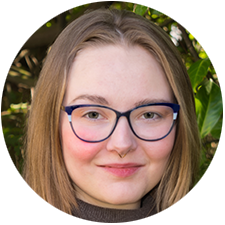
Regina O’Kelley is a Ph.D. Candidate in Soil Science in the Department of Crop and Soil Science at Oregon State University. She earned her B.S. in Environmental Science and Terrestrial Ecology from Western Washington University. Regina’s research in soil microbial ecology spans natural and managed ecosystems, with an emphasis on response to disturbances. She assesses the effectiveness of soil health indicators in Oregon and their potential for characterizing ecosystem functionality.
Additionally, Regina is a collaborator on a post-fire carbon cycling study. To characterize the biological contribution to changes in soil carbon storage after wildfire, she is measuring shifts in microbial nutrient acquisition and transformation. Regina is dedicated to science communication and application of ecological principles to conservation projects. She is an Oregon Museum of Science and Industry Science Communication Fellow and enjoys creating informal science education content on social media.
"Soil Health and Soil Ecology: Removing Silo Walls Will Benefit Both Fields"
Soil ecology has long been a nexus of the biological, chemical and physical components of the soil ecosystem. Advancements in this field have elucidated processes by which soil biota both influence and are influenced by their environment. Soil health, a newer concept, has been defined as the ability of the soil to function as a living ecosystem. Yet, researchers in soil health and soil ecology are siloed. These silo walls leave an unfulfilled opportunity for growth. My research on Oregon soil health indicators and soil disturbance ecology has provided me with unique insight into how the fields can benefit one another. Soil health research has focused on the development of indicators that are practical for ongoing monitoring of soil conservation projects. This strategy has clear applications in ecological restoration research, as does the efforts of the soil health research community to disseminate their work to non-academic audiences. In turn, soil health research could be augmented by adopting practices that are common in ecology. My recommendations are that soil health researchers contextualize indicators in ecosystem frameworks, cautiously interpret proxies, and clarify how soil health frameworks can be used for non-agroecosystems.
Martin and Ruth Massengale Lectureship
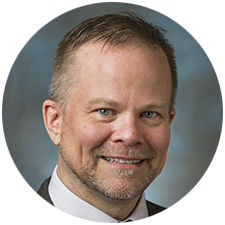
Kevin Folta is a Professor in the Horticultural Sciences Department at the University of Florida. He earned his Ph.D. from the Laboratory for Molecular Biology at the University of Illinois at Chicago in 1998. His program focuses on the role of light and plant development, the genomics of important fruit traits, and development of novel small molecules as future antibiotics and plant protection agents.
Dr. Folta has authored over 130 refereed journal articles and edited two books. He also hosts the Talking Biotech Podcast, among the most downloaded podcasts in Life Sciences. He serves as associate editor for Molecular Horticulture and Frontiers in Plant Science. He has been recognized with prestigious awards for his science communications efforts.
His family farms fruits, vegetables, eggs and turkeys in rural Florida.
"A Counterintuitive Approach to Science Communication"
While agricultural technologies have been shown to benefit agricultural producers, the public is often confused or concerned about food and farming. From genetically engineered (GMO) seeds, to antibiotics, to herbicides, to hormones, consumers are asking important questions. Unfortunately, scientists, farmers and industry voices have not traditionally engaged their concerns. The internet’s many self-appointed “experts” were happy to fill that void, providing disinformation, creating uncertainty, and spawning arduous regulatory burdens that slow or stop deployment of new farming technologies. New innovations that could help food security, the environment, or farmer profitability do not reach the field. The problem can be solved at least in part with more effective communication. Crafting narratives around food and farming requires a different formula, one that’s based on what has been learned from human psychology, hostage negotiation, classic philosophy and customer service. This surprising approach changes hearts and minds and actually is much simpler than simply burying a concerned public in facts and figures. Scientists must also be present in social media space. The presentation will talk about how to effectively engage a concerned public and where to do it, exploiting the internet’s networks for maximum impact.
William H. Patrick, Jr. Memorial Lectureship
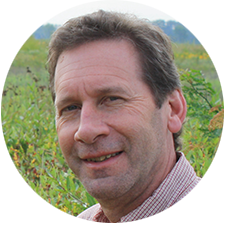
Christopher Craft is the Janet Duey Professor of Rural Land Policy in the O’Neill School of Public and Environmental Affairs at Indiana University, Bloomington, where he teaches courses in Wetlands Ecology, Restoration Ecology, Applied Ecology and Environmental Science. He received degrees from the University of North Carolina-Asheville (BA, Biology), University of Tennessee (MS, Ecology) and North Carolina State University (PhD, Soil Science). Professor Craft has 35+ years of experience working in inland freshwater and coastal wetlands. His research interests include wetland restoration, agricultural and urban wetlands, nutrient enrichment & eutrophication, carbon sequestration, and effects of climate change. His research projects span the eastern, Midwest and western U.S., Europe and China. Chris is a founding member (since 2000) of the National Science Foundation-funded Georgia Coastal Ecosystems Long Term Ecological Research program. From 2008 to 2009, he served as President of the Society of Wetland Scientists (SWS), an international organization that promotes sound wetland science, education and management. In 2012, Professor Craft received the National Wetlands Award for Science Research sponsored by the Environmental Law Institute, Washington DC. Professor Craft is author of Creating and Restoring Wetlands: From Theory to Practice, 2nd Edition (2022), and co-editor of Wetland Soils: Hydrology, Landscapes, and Classification (2016) with Michael Vepraskas.
"Restoring Wetlands in a Rapidly Changing World"
The world is changing rapidly. The earth’s population has more than doubled from 3 billion to nearly 8 billion people in the past 60 years, intensifying the demand for land, water and food. At the same time human activities have increased atmospheric CO2 from 316 ppm in 1960 to nearly 420 ppm today. More and more people are choosing to live in urban environments and coastal areas. These trends are expected to continue, putting increasing pressure on water, land and other natural resources including wetlands.
In this talk, I illustrate how wetland restoration can be used alleviate some of these pressures. Large-scale restoration of freshwater wetlands can lessen the negative effects of agriculture on water quality by filtering sediment and nutrients from runoff. In urban environments, wetland restoration can be used to enhance wildlife habitat while, at the same time, providing opportunities for education and comfort from the often-frenetic lifestyle.
I close by discussing the challenges of wetland restoration in a rapidly changing world and how engagement with the broader public can best prepare restored wetlands to be resilient to it.
Ron Phillips Plant Genetics Lectureship
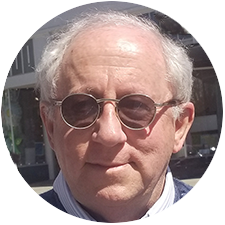
Paul Gepts is a Distinguished Professor in Plant Sciences at the University of California, Davis. He holds a degree of Agronomic Engineering (Université de Liège, Belgium) and a PhD in Plant Breeding & Plant Genetics (University of Wisconsin, Madison).
His research and teaching focuses on the domestication and evolution of crops, with main emphasis on Phaseolus beans, including the applications to genetic resources conservation and utilization. He leads the grain legume breeding program at UC Davis, has conducted germplasm explorations in Latin American, and advanced the development of genetic and genomic tools for Phaseolus genetic analysis. He has authored some 250 scholarly publications and edited or co-edited three books. He has mentored some 40 graduate students and over 50 visitors from all continents.
He is a Fellow of AAAS, ASA, and CSSA and a recipient of the CSSA Meyer Medal and International Crop Science Award. He received the Agropolis Malassis Prize (France).
"Grain Legume Domestication: the Evolution of Pod Function in Dry and Green Beans"
Since the origins of agriculture, grain legumes have complemented sources of carbohydrates such as cereals and root crops, both agronomically as a source of nitrogen and nutritionally as a source of dietary proteins and other nutrients. Paul Gepts will discuss the domestication of common bean, the most important grain legume for direct human consumption. He will focus on the evolution of the pod, a critical organ for dry and green beans, from a genetic, genomic, and environmental standpoint. He will also illustrate how this information is applied to germplasm conservation and breeding.
Calvin Sperling Memorial Biodiversity Lectureship
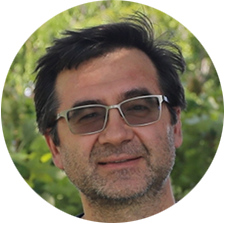
Eduard Akhunov is a University Distinguished Professor in the Plant Pathology Department at Kansas State University. He earned his Ph.D. degree from the Institute of Genetics and conducted his postdoctoral research at the University of California.
His program focuses on studying the evolution of wheat diversity and contribution of wild relative introgression to local adaptation and crop improvement. By applying integrated analysis of genomic data, molecular genetics and genome editing approaches his team seeks to understand mechanisms controlling wheat productivity, nutritional quality and disease resistance traits with the goal of developing new resources and tools for improving this vital crop.
Dr. Akhunov has advised 25 graduate students and postdoctoral scholars. His work has resulted in more than 100 peer-reviewed publications. He is as a senior editor for G3 and an associate editor for Plant Genome. He also serves as a director of the Wheat Genetics Resource Center.
"The Quest to Find Adaptive Diversity in Wild Relatives to Improve Wheat"
Bread wheat is a product of hybridization between domesticated tetraploid wheat and a wild diploid relative. The loss of genetic diversity accompanying domestication and polyploidization was compensated by extensive gene flow between wild relatives and wheat. The analysis of the whole-genome diversity maps recently developed for wheat and its wild relatives allowed for accurate mapping of introgressiion. Introgression was often associated with regions showing evidence of improvement selection and adaptation to climatic factors suggestive of its adaptive role. Historic introgression from wild relatives explains substantial proportion of phenotypic variance for many agronomic traits in wheat. These results provided first evidence that gene flow from wild relative played an important role in shaping the agronomic phenotypes in modern wheat and likely contributed to adaptation in new environments. By applying environmental scans to georeferenced collections of wild relatives, we show that it is feasible to identify adaptive alleles for improving wheat. By assessing wheat population with introgression from wild relatives, we demonstrate that introgression carrying climate-associated alleles could improve yield potential under irrigated and non-irrigated conditions. The development of effective approaches for prioritizing climate-adaptive wild wheat-relative diversity for incorporation into the breeding pipelines has potential to significantly accelerate creation of climate-resilient wheat.
Leo M. Walsh Soil Fertility Distinguished Lectureship
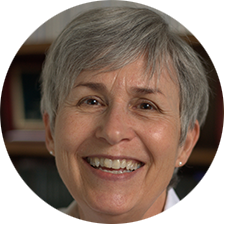
Deanna Osmond is Professor and Department Extension Leader in the Crop and Soil Sciences Department at NC State University. She earned her BS from Kansas State (Agronomy and Anthropology), MS from NC State (Soil Science), and PhD from Cornell (Agronomy) Universities.
For 30 years, Dr. Osmond has worked at the interface of nutrient management, conservation practices, and water quality and has led state, regional, and national field- and watershed-scale research and extension projects.
Dr. Osmond has published over 135 peer-reviewed articles and book chapters, and given over 175 invited presentations. She is a Fellow in both the American Society of Agronomy and Soil Science Society of America.
Currently she is leading FRST (Fertilizer Recommendation Support Tool) that aims to develop a soil-test, crop-response-to-fertilization web-based tool that provides consistent, transparent, and science-based information for nutrient recommendations across the USA..
"Building Collaborative Research Networks to Advance the Science of Soil Fertility"
Over the past four years, we have been building a collaborative research network, the Fertilizer Recommendation Support Tool or “FRST”, that focuses on modernizing fertilizer recommendations by developing a soil-test and crop-response-to-fertilization searchable web-based tool that provides more consistent, transparent, and science-based decision support for nutrient recommendations across the USA for major crops. By collaborating and aggregating state-level soil test correlation and calibration data we expect the sum will be far greater than the parts and enable us to translate our science into practice at previously unrealized scale, expanding the scope and increasing the impact of our work.
Sergei A. Wilde Distinguished Lectureship on Forest Soils
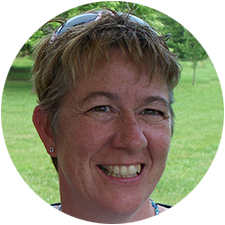
Debbie Page-Dumroese (she/her) is a Senior Research Soil Scientist with the Rocky Mountain Research Station located in Moscow, ID. She earned her B.S. degree from Grand Valley State University, her M.S. from Michigan Technological University, and her Ph.D. from the University of Idaho.
Dr. Page-Dumroese focuses on delivering soil science research to land managers across the Forest Service with the goal of minimizing soil disturbance. Debbie has collaborated with colleagues around the globe to measure above- and belowground changes associated with harvesting or restoration thinnings, wildfire or slash pile burns, compaction, organic matter removal, and organic amendments. She developed and delivered a standardized monitoring protocol for Forest Service soil specialists, now used nationwide. The monitoring protocol was developed based on data from the National Forest System and the North American Long-Term Soil Productivity study. She has authored or co-authored nearly 200 publications.
"Communicating the Dirt on Soil: Observations and Changes from 35 Years of Soil Science Research "
Forest Service researchers and land managers have the same goal: sustaining the nation’s forests on behalf of the American people. But the processes they follow to achieve that goal follows dichotomous pathways. The challenge is that some researchers think they have the all the answers land managers might need even though they have not asked managers what their questions are. Similarly, land managers would like answers to pressing issues to be solved yesterday, without fully understanding the process of research, or ask scientists for new research for which research has already been done (i.e., re-search). This often leads to frustration, misunderstandings, lack of trust, and difficulty in communication and data sharing. These challenges are, however, not insurmountable. Achieving clear, successful communication, and understanding the dichotomous approaches of scientists and land managers, requires some thought and novel approaches. Knowing there is a problem is the first step in solving the problem. In addition, the methods used to deliver information must be diverse, engaging, and provide a range of options that can be considered by managers. This presentation will focus on information delivery opportunties from science production to manager use.
-->





